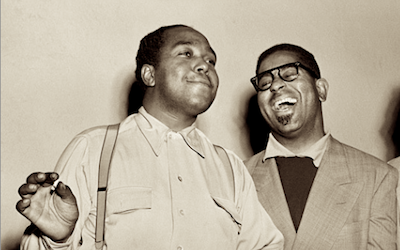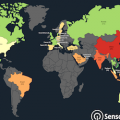PTE考生目前最大的问题之一就是练习题缺乏。除了有限的基本官方书(PLUS,Testbuilder, OG)之外,就没有题了。很多英语基础不是很扎实的同学很难找到练习材料。墨尔本文波雅思PTE培训学校专门为墨尔本,悉尼PTE考生准备了适合PTE听力阅读练习的科学60秒。各位PTE同学可以练习PTE听力中的summarise spoken text和PTE口语中的retell lecture,PTE听力口语-科学60秒-Frosty Moss练习记笔记技巧和复述。废话少说,下面开始:
Jazz Improvisers Appear to Use Language Brain Areas
听力内容:
60秒科学节目(SSS)是科学美国人网站的一套广播栏目,英文名称:Scientific American – 60 Second Science,节目内容以科学报道为主,节目仅一分钟的时间,主要对当今的科学技术新发展作以简明、通俗的介绍,对于科学的发展如何影响人们的生活环境、健康状况及科学技术,提供了大量简明易懂的阐释。
Jazz musicians are skilled improvisers. And now we know that they craft their spontaneous melodies the same way you craft a sentence.
Researchers scanned the brains of 11 professional musicians doing what’s called °∞trading fours°±: two soloists take turns playing short riffs of about four bars. During each 10 minute session, a subject in a cramped functional MRI machine with a small keyboard traded fours with a second musician outside the scanner.
As the musicians played, the language areas of their brains lit up. Specifically, the players were using the regions that normally fit words together into phrases and sentences, using the rules of syntax. The study is in the journal PLoS ONE. [Gabriel F. Donnay et al., Neural Substrates of Interactive Musical Improvisation: An fMRI Study of °ÆTrading Fours’ in Jazz]
The research demonstrates that the brain appears to treat creating music as a form of communication. After all, trading fours is a musical conversation, where each player makes and modifies melodies in response to the other. And the research also hints that syntax applies to more than language. The same brain regions help us keep all our communication swinging smoothly.
–Sophie Bushwick





